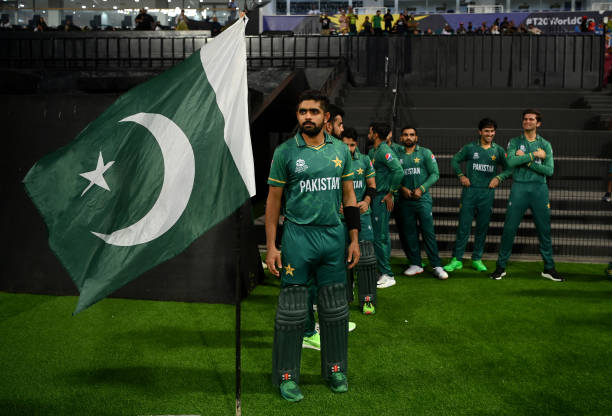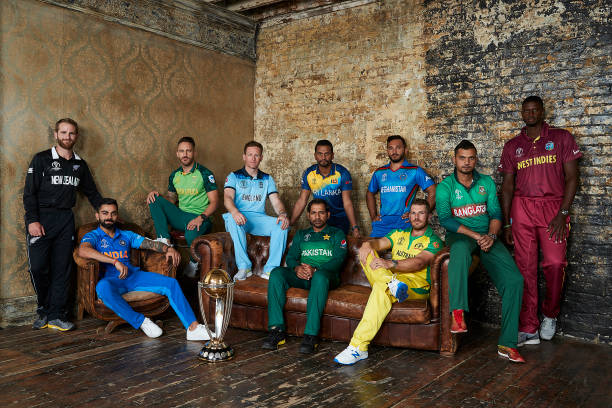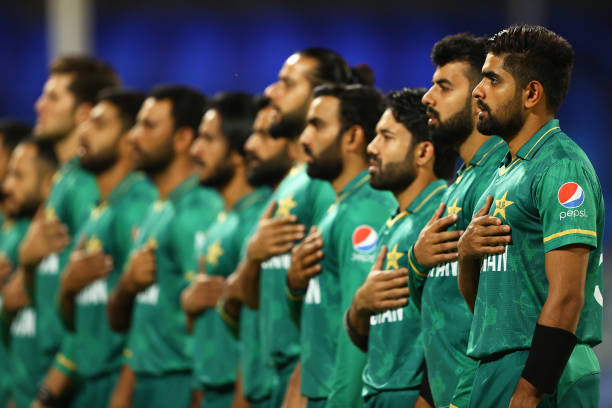Almost every day I hear analyses from cricket pundits in Pakistan that the standard of the game in Pakistan is going down because of the lack of international cricket in the country. This is. Indeed, very far from the truth.
We cannot have people like General Tauqir Zia, Dr Nasim Ashraf (the worst of them all), and Ijaz Butt running your cricket and expect it to prosper. Can we? Yes, Pakistan has had political appointees in the past but nothing like the ones we have had since 1999. We can’t compare these jokers with the likes of Kardar, Nur Khan, Gen Azhar, or Majid Khan to name a few. Not that our cricket governance was good earlier but, just like everything else in Pakistan, it has gotten substantially worse in the past decade or so.
If the international isolation alone could be held accountable, then can anyone explain to me how South Africa re-emerged from the same level after about 22 years of complete isolation at all levels? Pakistan has known nothing like that. How Sri Lanka became a force in cricket soon after its induction and Bangladesh continues to struggle with little hope? No, it is about the way the game is run in our country and the manner in which its governance has further deteriorated in the past fifteen years.
In order to explain what I mean, please let me briefly talk about another sport which is an equally fervent national passion in a country I know well. Let’s talk about (ice) hockey in Canada. Canadian hockey is a paradigm of meritocracy and organization. Thousands of Canadian boys start playing hockey as little kids, before they are even in kindergarten. From that point on there are leagues for every age class, and at each of those levels, players are sifted and sorted and evaluated. The most talented are separated out to be groomed for the next level. By the time the players are 15 to 16 years of age, the very best of the best have been channelled into an elite league known as Major Junior A, which is the top of the pyramid. You can’t buy your way into Major Junior A hockey. It doesn’t matter who your parents are or who your grandparents were or how much money or connections your family has. Nor does it matter if you live in the most far-flung corner of the most northerly province in Canada. If you have the ability the vast network of hockey scouts and talent spotters will find you, and if you are willing to toil to develop that ability, the system will reward you.
In fact this is how most sports pick their future stars. It’s the way soccer is organized in Europe and South America and it’s the way the Olympic athletes are chosen and groomed in most countries. It is not all that different from the way the world of classical music or ballet picks its future virtuosos and ballerinas. This is also the way the elite educational systems pick their future scientists. Identifying and sorting the talent and then grooming it. In the world of cricket this is the way a tiny, poor, and troubled country like Sri Lanka continues to produce highly competitive cricketers to consistently punch well above its weight in the sport. If you shine at the school level in Sri Lankan cricket you remain under the spotlight. Success in Sri Lankan cricket is based on individual merit – the two words alien to Pakistan. Players are judged on their own performance and not on anyone else’s.
I hope this will help you understand why Pakistan does relatively poorly in a sport where it arguably produces more all-round talent than any other country and why so often its immensely talented players field like novices – the primary skill in the sport. There is something profoundly wrong with the way we run the game in Pakistan and make sense of talent. So much talent goes wasted in the country at all levels of the sport. Biologists often talk about the ecology of an organism; the tallest oak in the forest is the tallest not just because it grew from the hardiest acorn but also because no other tree blocked its sunlight, the soil around it was deep and rich, no rodents chew through its bark as a sapling, and no lumberjack cut it down before it matured. Now compare the analogy with the cricket in Pakistan. How much talent goes wasted without ever being spotted? How many talented players are sacrificed to make room for an Imran Frahat, a Faisal Iqbal or a Shoaib Malik? How many players are not allowed to blossom because the captain or somebody didn’t like him? We all know of numerous examples from other countries where two or more players hated one another’s guts but never resorted to unfair means or let their animosity come in the way of the interest of the team. We all know that successful sportsmen like Miandad and Inzamam come from hardy seeds but do we know about the sunlight that warmed them (they both had their early mentors), the soil in which they put down their roots (their strong captains were instrumental in helping them flourish), and the rodents and lumberjacks they were lucky enough to avoid? Success in a sport is not about tall trees, it’s about forests. A forest that stops to flourish will sooner or later run out of tall trees. We saw this in West Indian cricket and we are witnessing it in Pakistan. India is quite the reverse. Its flourishing forest is now producing tall trees like the country had never known before. Remember you have to separate talented from untalented and provide superior experience to the talented. India is doing that now.
In Pakistan cricket never selected, streamed, and differentiated effectively. And now poor leadership on and off the field is ruining the game. The country’s ubiquity of passion for the game alone will not suffice to keep us competitive. We so profoundly personalize success and miss opportunities to lift others onto the top rung. See how Sri Lankan and Indian cricket boards now strive to create accumulative advantage by focusing deeply on each player. Remember how under great captains like Mushtaq and Imran every player was important? We don’t give talent its run only connections can survive failure. Otherwise we prematurely write off players as failures. Someone like Hasan Raza, for example. We are too much in awe of those who succeed and far too dismissive of those who fail. Ask Haroon Rasheed how nobody in the country –from the board to the selectors to the man in the street- had any soft corner left for him because of just one poor performance in the world cup. And he did not have a strong captain, like Mushtaq or Imran, to stand by him. Our cricket crazy public has not the remotest idea of who –except for irresistibly gifted ones- makes and who doesn’t and why. The whole fabric of the game is woven around personal interests and compromises.

The role of a captain in cricket is also very different from any other sport. The captain in cricket is a leader, a role model, an inspiration, a thinker, a strategist, and a tactician all rolled into one. Pakistan’s laxity in selecting its captains has also pulled the game down. I will not write about our current captain, Misbah, here because; one that is the not the purpose of this article and two, talking about the harmful effects of Misbah’s completely risk averse instincts on Pakistan’s cricket is a detailed subject which will need a series of articles. Suffice it to say that Pakistan’s captains –except the honourable exception of Younus Khan- in recent years have been squarely responsible for lowering the level of the game in the country. Malik, Yousuf, Butt, and Misbah have all been a disservice to Pakistani cricket either because of their ineptitude or through their malice and shenanigans. Look how Ganguly transformed Indian cricket and how Dhoni has taken it to another level. The success under Mushtaq and Imran was not just limited to their teams but it instilled passion round the country to produce a generation of better cricketers than their own generation. Similarly there are numerous other examples -like that of Worrell- of how a cricket captain transformed the game in his country. It has now been twenty one years since Pakistan has had a captain who can be singled out among all his team for his outstanding leadership qualities. Meanwhile every country –except West Indies- has had a few. {Australia: Border, Taylor, Waugh, and Clarke / South Africa: Cronje and Smith / England: Hussain, Vaughan, and Strauss / Sri Lanka: Ranatunga and Jayewardene / India: Ganguly and Dhoni / New Zealand: Fleming}. Believe me or not, this is also a factor responsible for the decline of the game in the country.

Therefore what ails Pakistan cricket is not the international teams’ inability to travel to Pakistan. Not in a country where full-houses in its small stadiums were already a thing of the past, even in the ODIs, long before the international teams stopped coming to the country for security reasons. Even the much awaited tour of Sri Lanka could not bring many spectators to the stadiums before it was halted by the firing incident on 3rd March 2009 on the third day of second test in Lahore. Instead, what ails Pakistan cricket is the deplorable governance, poor organization, blatant nepotism, corruption, and lack of meritocracy. I have personally known of instances where players were asked to pay to ensure their merited selection in the national squad. Nepotism and corruption at the stages below the national level are rife beyond imagination. True, the very best still make their way. But what about others just a notch below who have the resolve and temperament to be groomed into top class material? Even more importantly, nepotism and poor organization mean that the pool to identify and select from remains relatively small and the country’s immense reservoirs of talent are by no means fully exploited. In my younger days, I have known many boys who could have excelled and surged through in a proper system. But they were never spotted and encouraged and thus gave up too early for other (mostly economic) imperatives.
For those who remember our fatal decline in Squash and Hockey, two games where we took world leadership for granted, a continued loss of competitiveness in cricket seems a clear possibility. We have seen how the slip occurs. While cricket’s governance will continue to reflect the ethos of the country a few things must be done for the game to maintain its standard in the country. The most important one of them is that the game has to be organized at regional bases from the grassroots levels. Imran has been saying this for three decades now. The captains must be chosen for their leadership skills and not for their political capital. A cricket captain has to be someone with the capacity to inspire, stir, rouse, and then lead.







